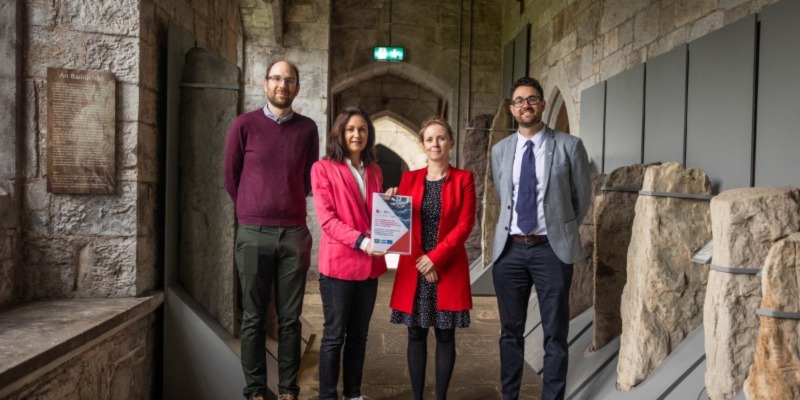10 May 2023
By Tom Collins
tom@TheCork.ie

A lack of government engagement, support and funding are highlighted as the main barriers for Irish firms when entering or doing business in the Irish offshore renewable energy sector, a Cork University Business School (CUBS) research finds today.
214 firms in Ireland’s offshore industry were surveyed in the report which reveals a national picture of the common challenges and strengths for firms operating in the sector.
Key findings in the report – Innovation, Networking and Policy in the Offshore Renewable Energy Sector – include:
- Insufficient support and engagement by government and a lack of funding were highlighted as the main barriers to innovation for firms.
- Government support was seen as a critical facilitator for the creation of enhanced networking and collaborative opportunities that promote innovation activity.
- Firms in the UK and Europe reported collaborative, bureaucratic, funding, wider infrastructural and regulatory challenges for their operations. These difficulties were noticeably greater for Irish interviewees.
- Most firms cite financial constraints as a significant restriction to the development of new products and services.
- Strong Industry-University relations are evident, but industry interviewees criticised rigid university semesters and academic incentives that prioritised publication over industry impact, as barriers hindering more fruitful industry-university collaborations.
- Some respondents cited a lack of industry experience from academics as a problem in interactions highlighting that academics fail to see the challenges from an industry perspective.
- Networking with other firms and Higher Education Institutions was cited as the main factor to increase supply into the sector.
“In order to stimulate technological investment and commercialization in the sector, it is vital to have both firm funding commitments and a stable policy and planning environment. Presently there is huge uncertainty around these factors in Ireland,” said lead researcher Dr Frank Crowley, lecturer in Economics at Cork University Business School and Co-Director of the Spatial and Regional Economics Research Centre at University College Cork (UCC).
“Ireland has the natural resources and the unique geographical location to be the global leader in these sectors of the future. But now, I don’t see the commitment or the will from Government. There is too much second guessing on the technology and taking an adoptive and wait and see approach. The technologies are advancing, we see sites in Scotland, Wales, Portugal, the U.S. The technology will get cheaper and no matter what renewable tech becomes superior, be it offshore wind, wave or tidal, we still need to prepare our infrastructure, our ports, our grid, our research centres, and our supply chains. Certainty, commitment, and leadership by Ireland is needed sooner rather than later,” said Dr Crowley.
Role of universities is key
The report found that strong industry-university relations are evident, but industry interviewees criticised rigid university semesters and academic incentives that prioritised publication over industry impact as barriers hindering more fruitful industry-university collaboration.
“Knowledge brokers like Higher Education Institutions and special purpose Research Centres are likely to play a critical role in acting as platforms and anchors of coordination between government, industry, university and the wider society in the regional renewable energy innovation system, if the sector is to be successful,” Dr Crowley added.
The study as part of a wide research agenda into the sector will be launched later today (Wednesday, 10 May at 1.30pm) at University College Cork.
Most of the surveyed firms have over a decade of experience and are mainly micro in size with a highly educated workforce. Most firms in the sector are engaged in the earlier phases of technological development and the majority cite financial constraints as a significant restriction to the development of new products and services.
This research was conducted by the SELKIE work-package 9 research team which was led by researchers at the Spatial and Regional Economics Research Centre (SRERC) at Cork University Business School in UCC. The Centre focuses on research in the areas of regional economics, economic geography, innovation, labour markets, and environmental impacts.
